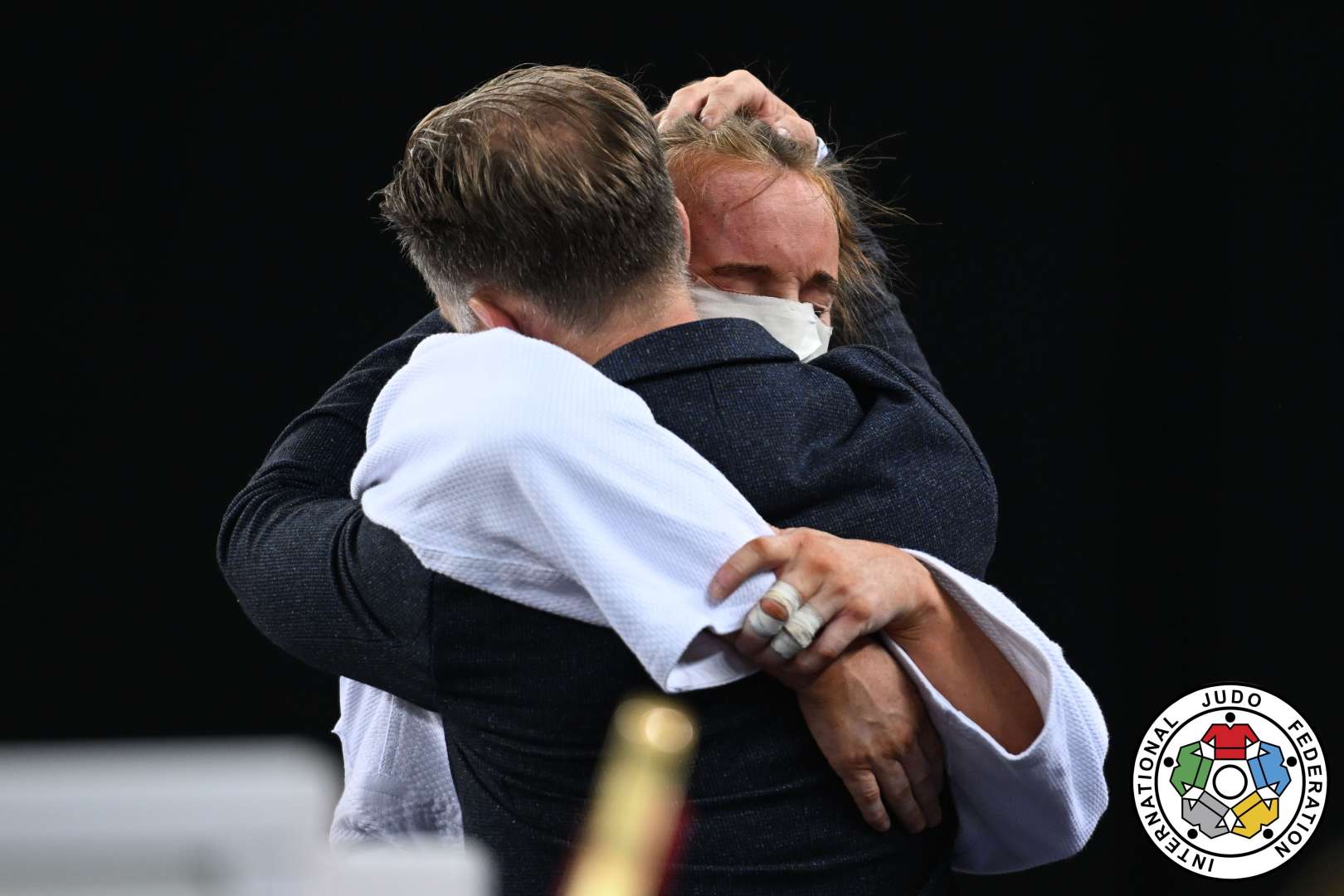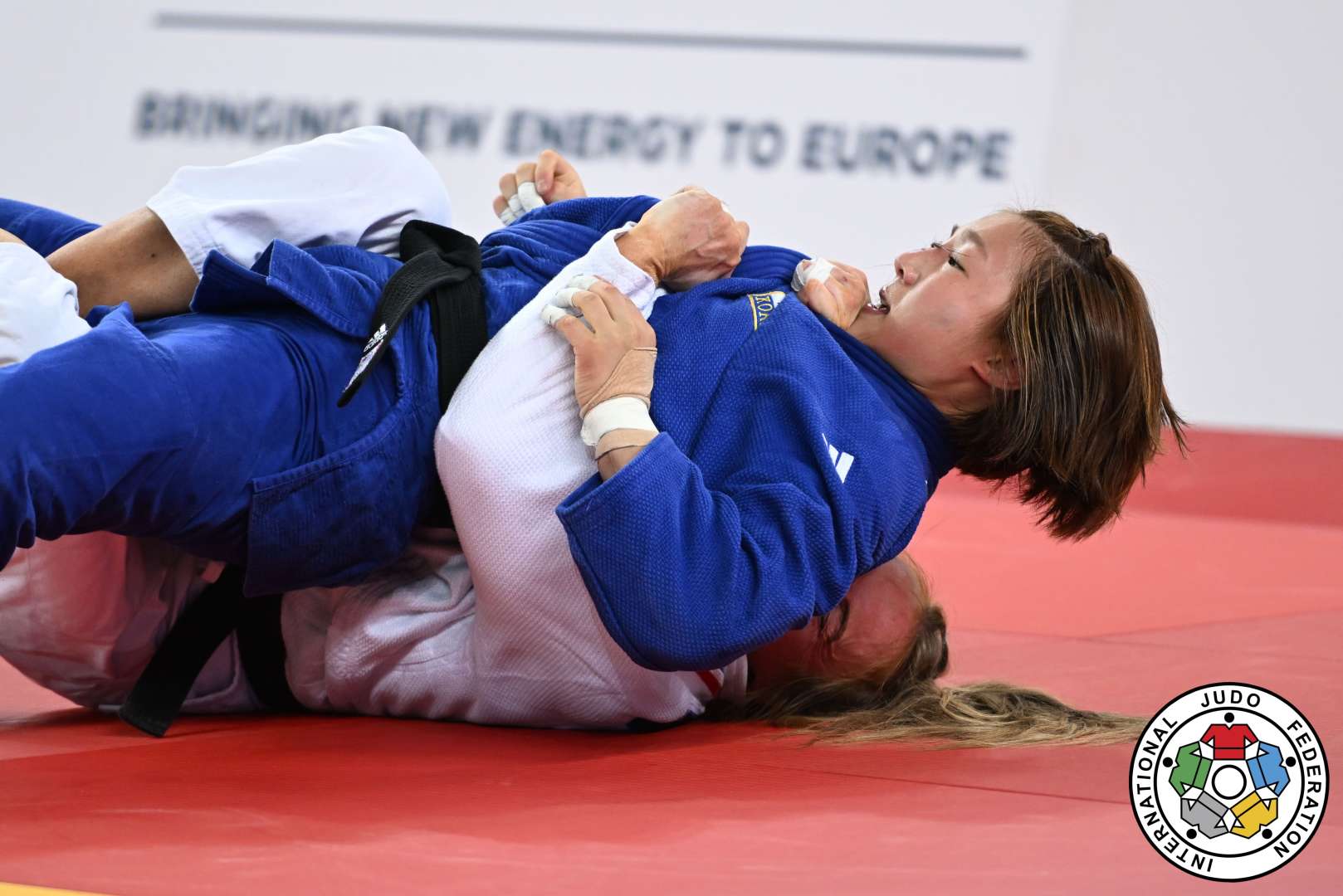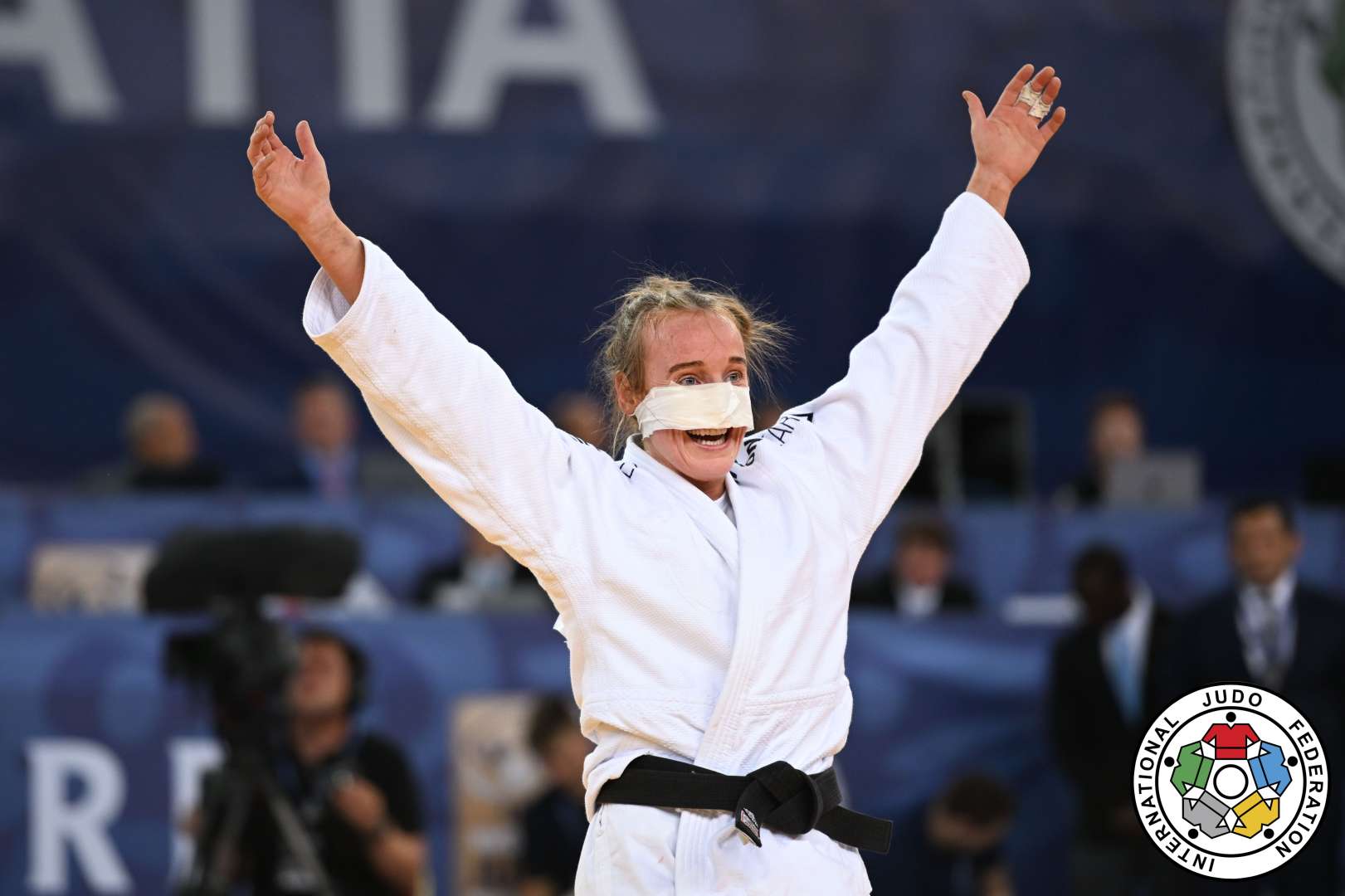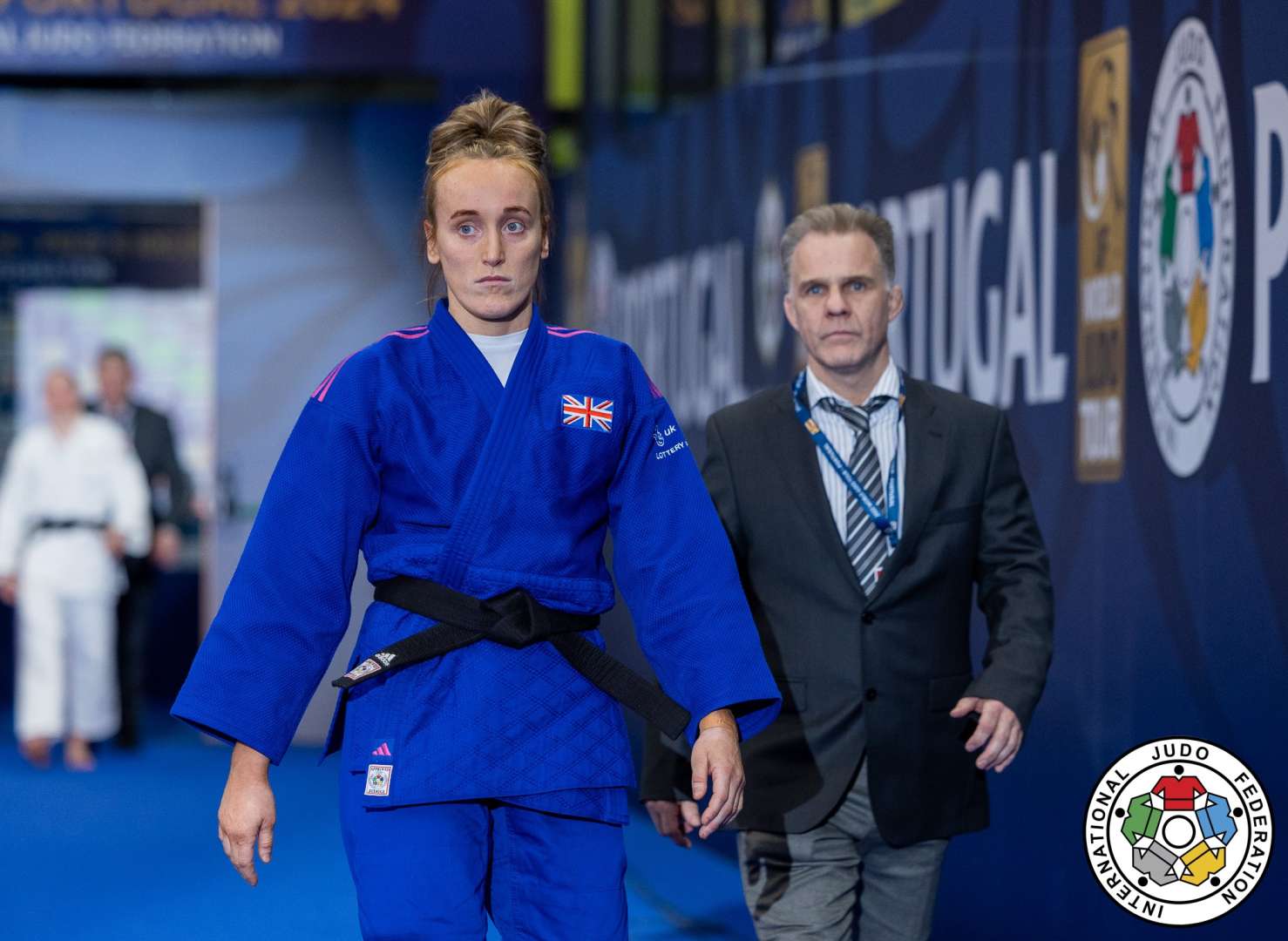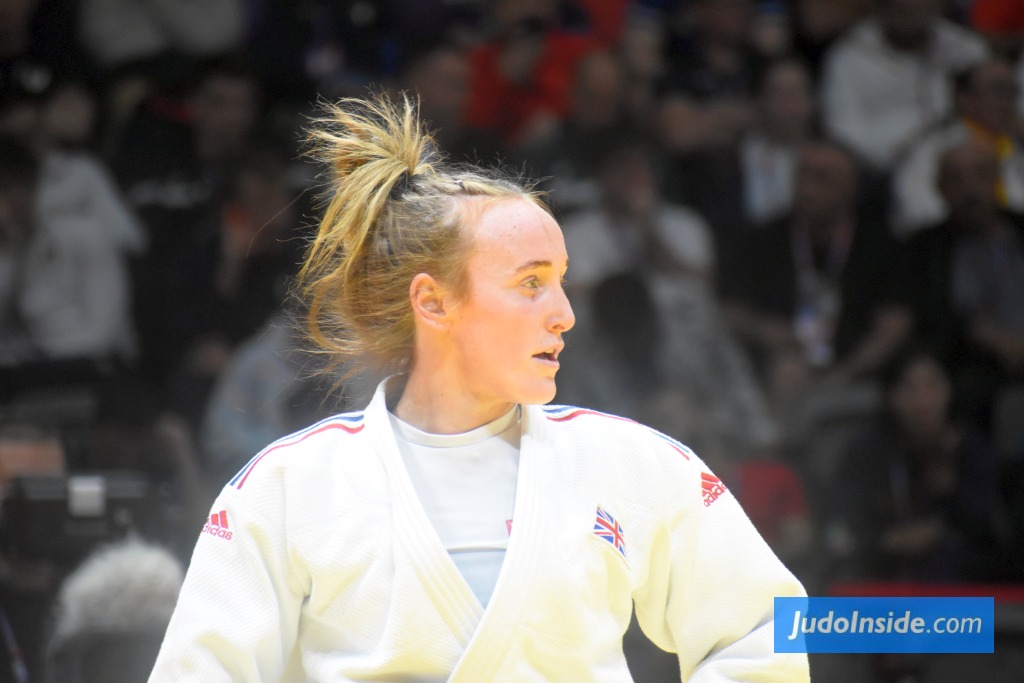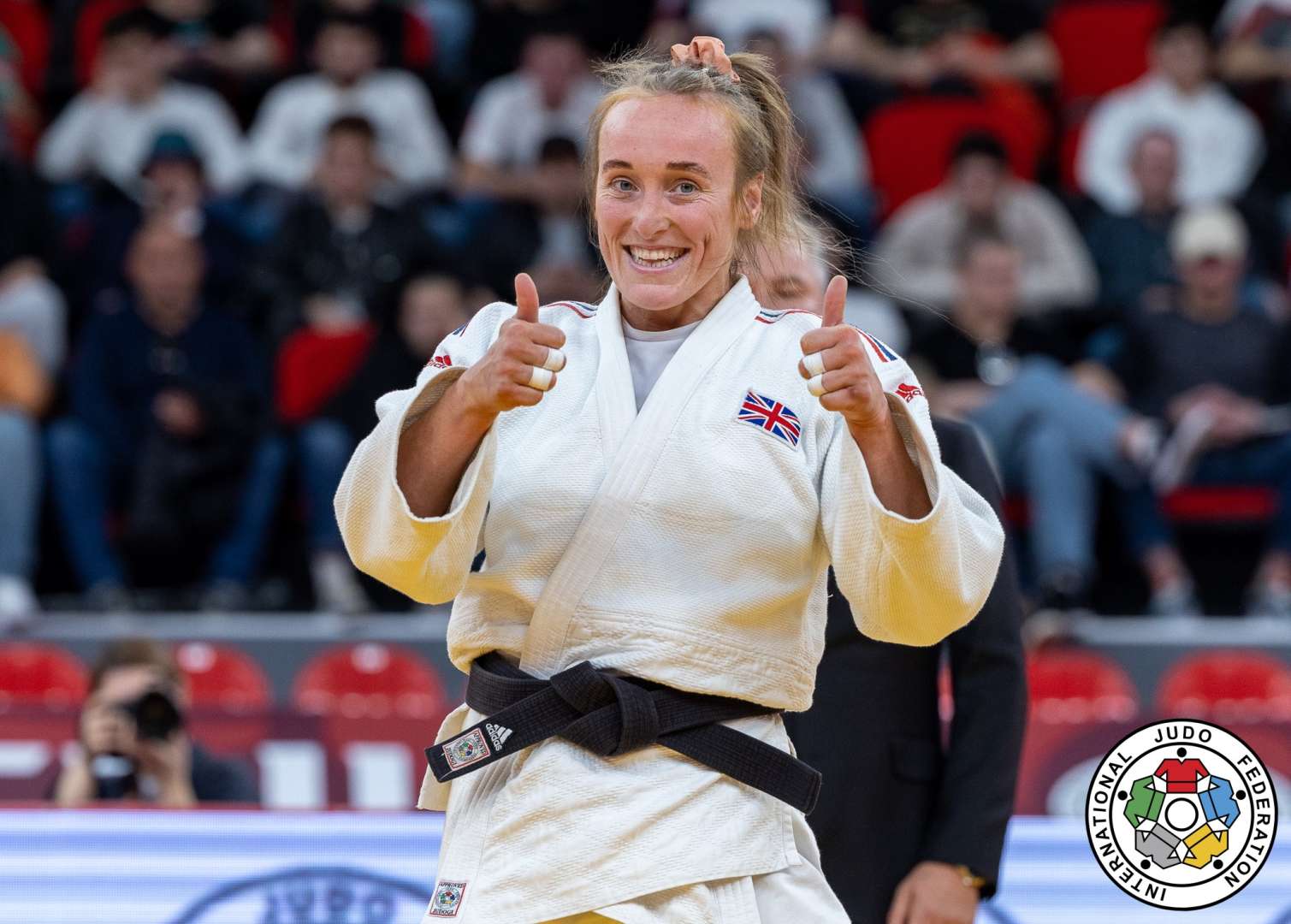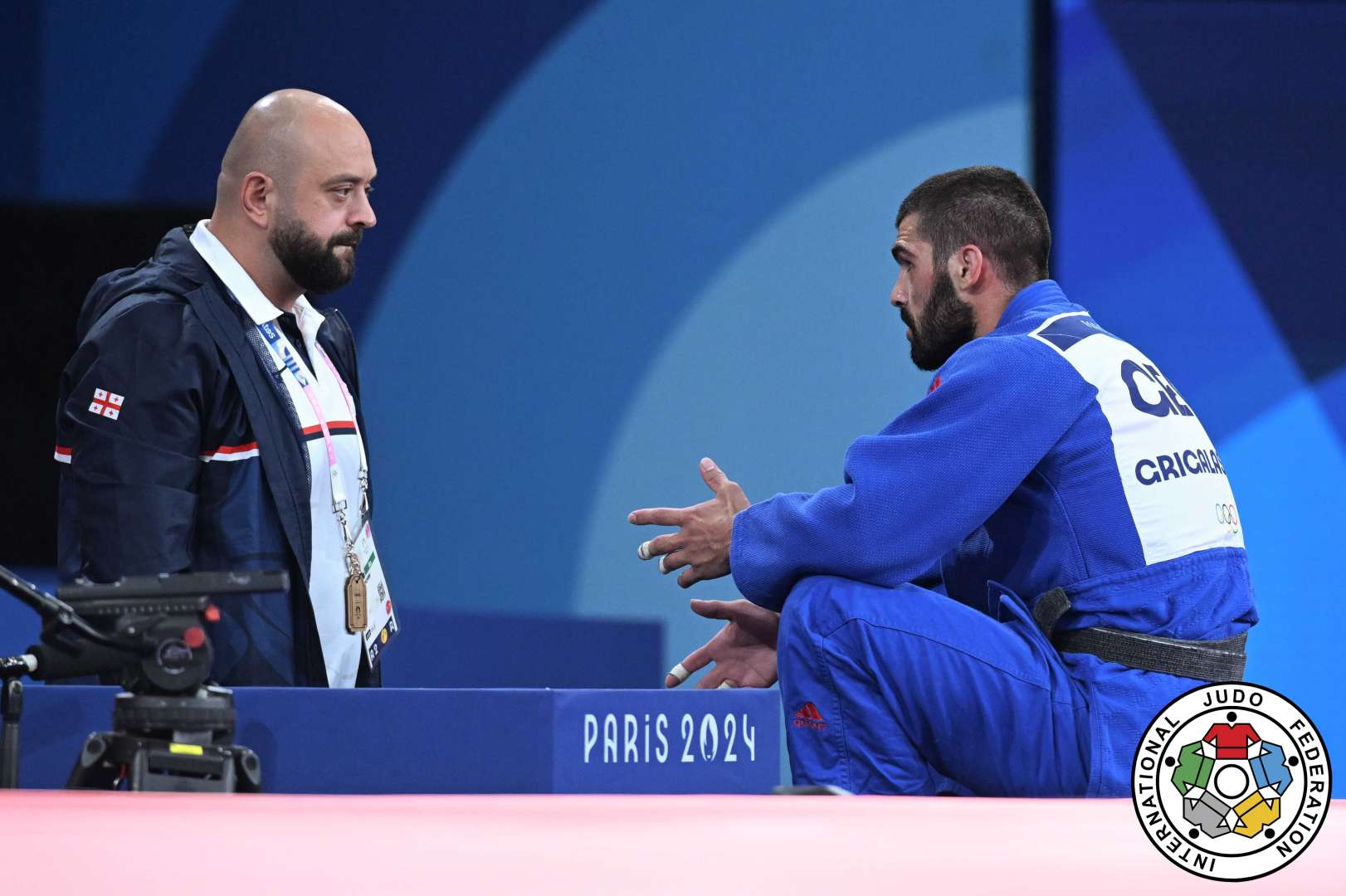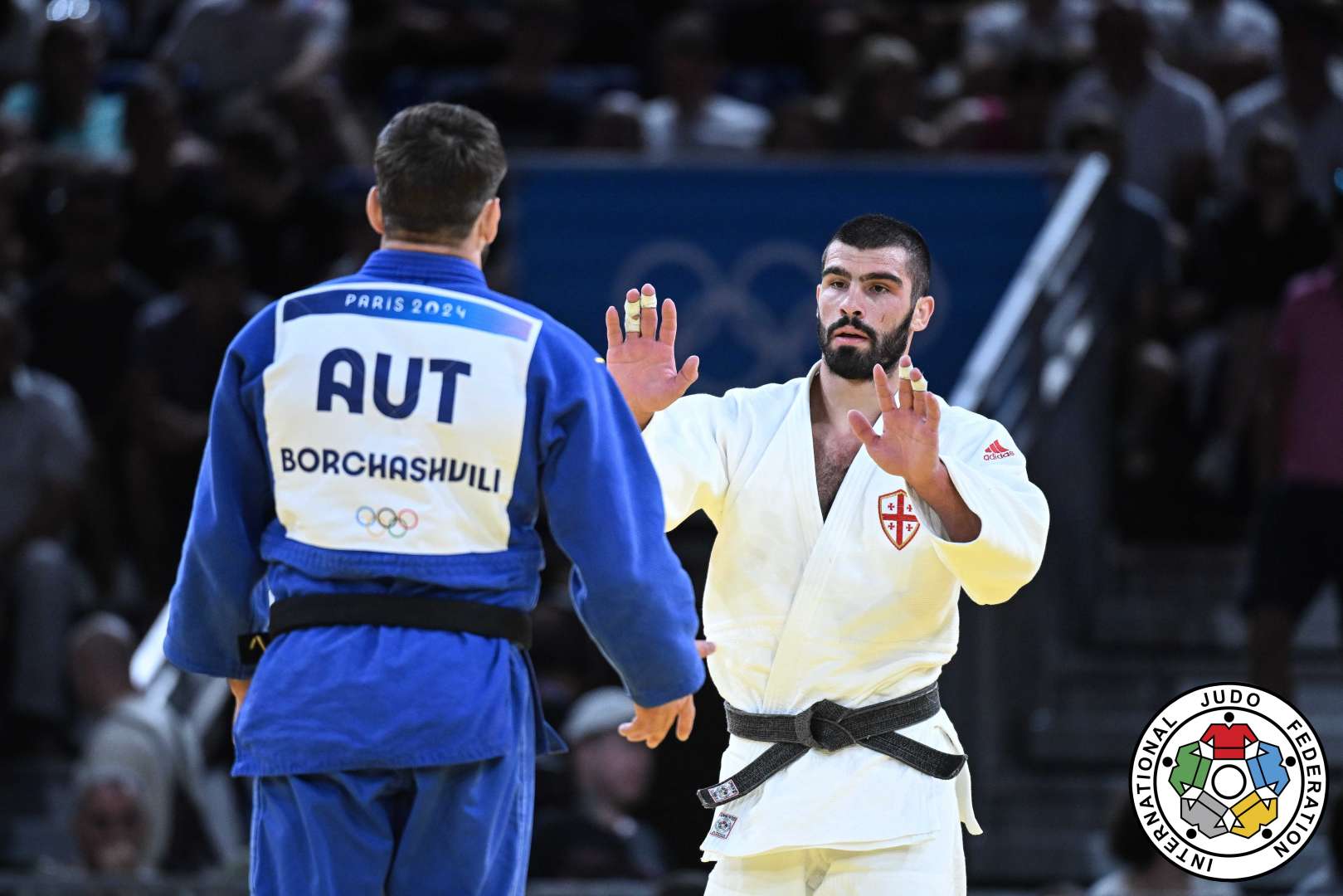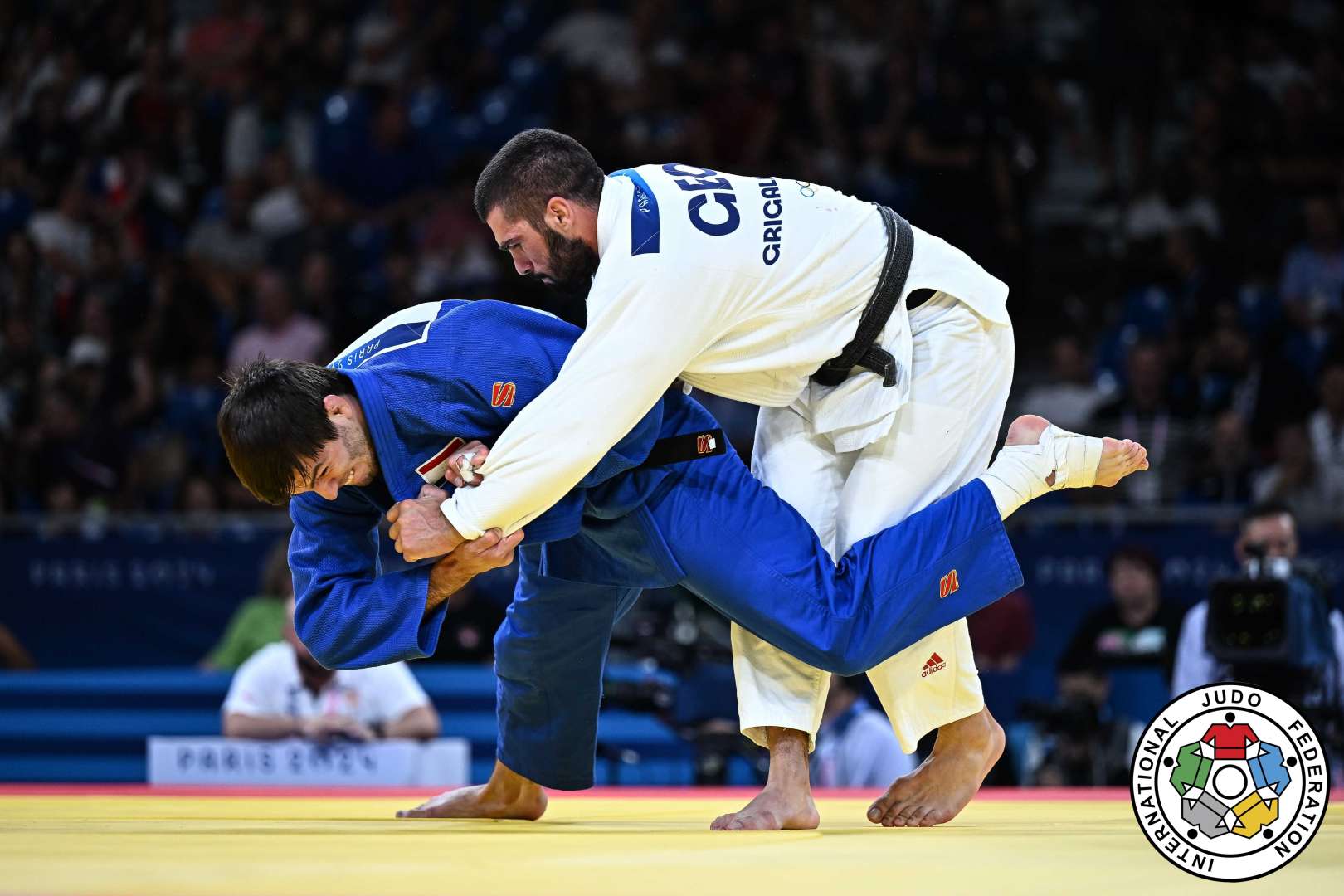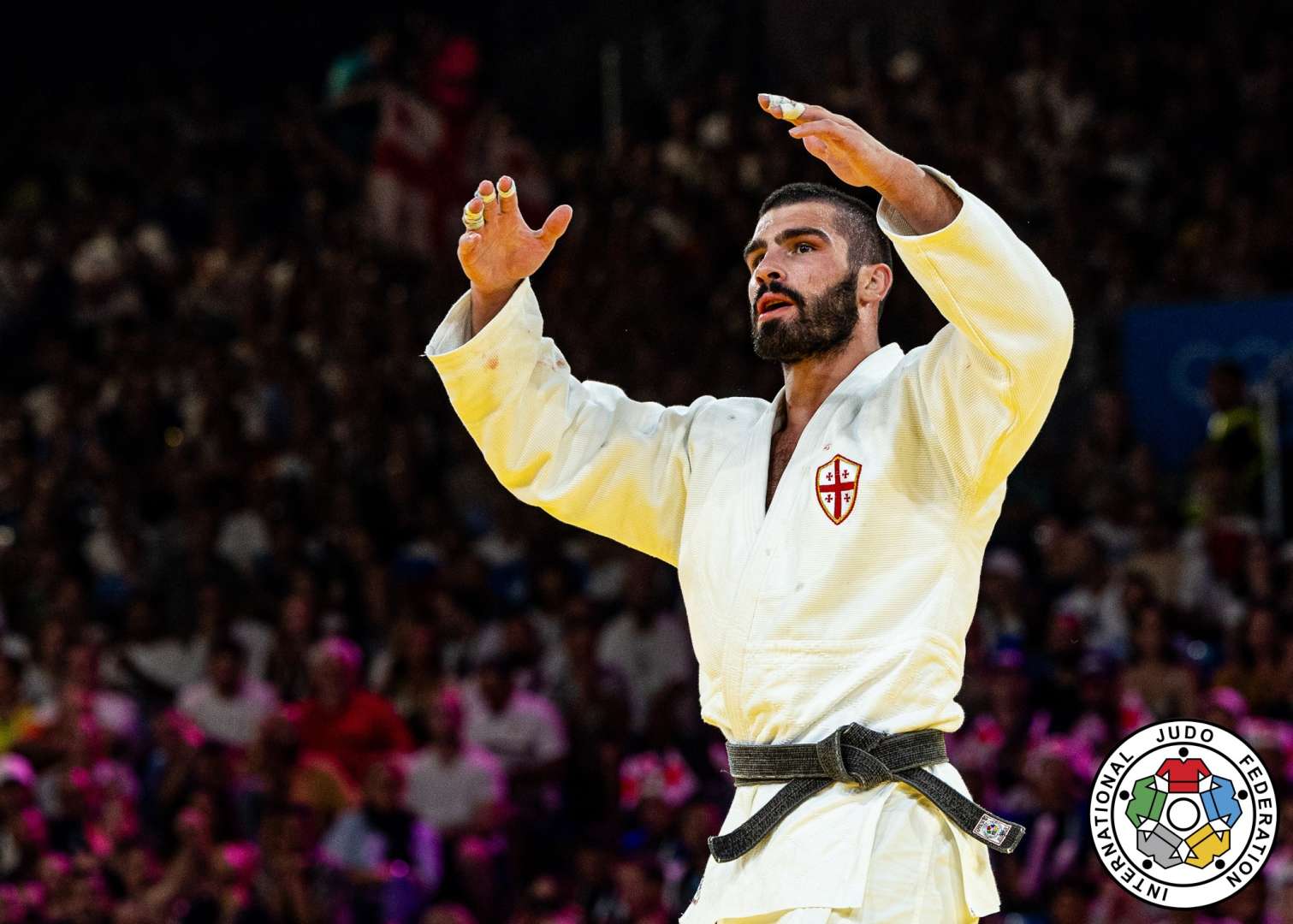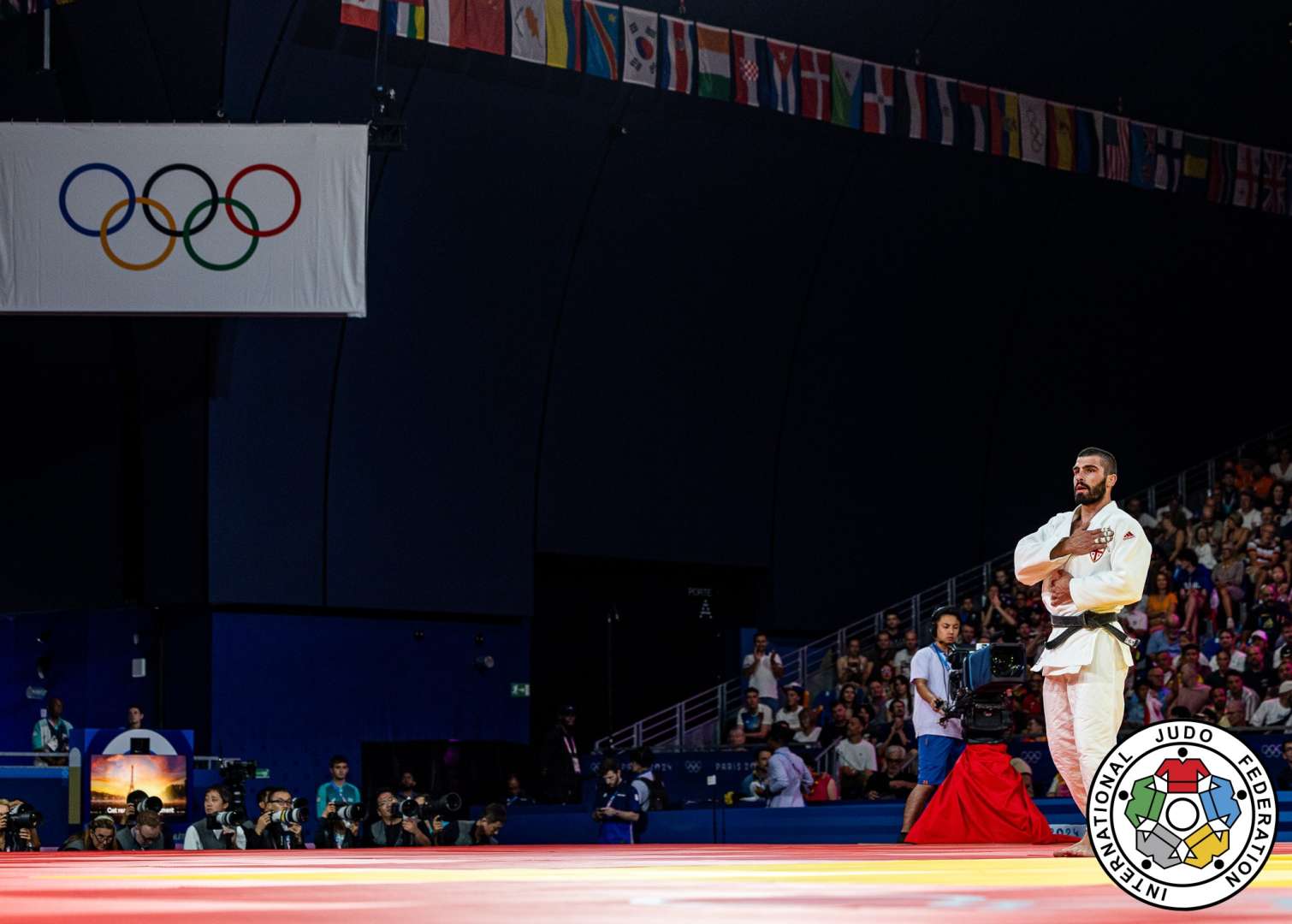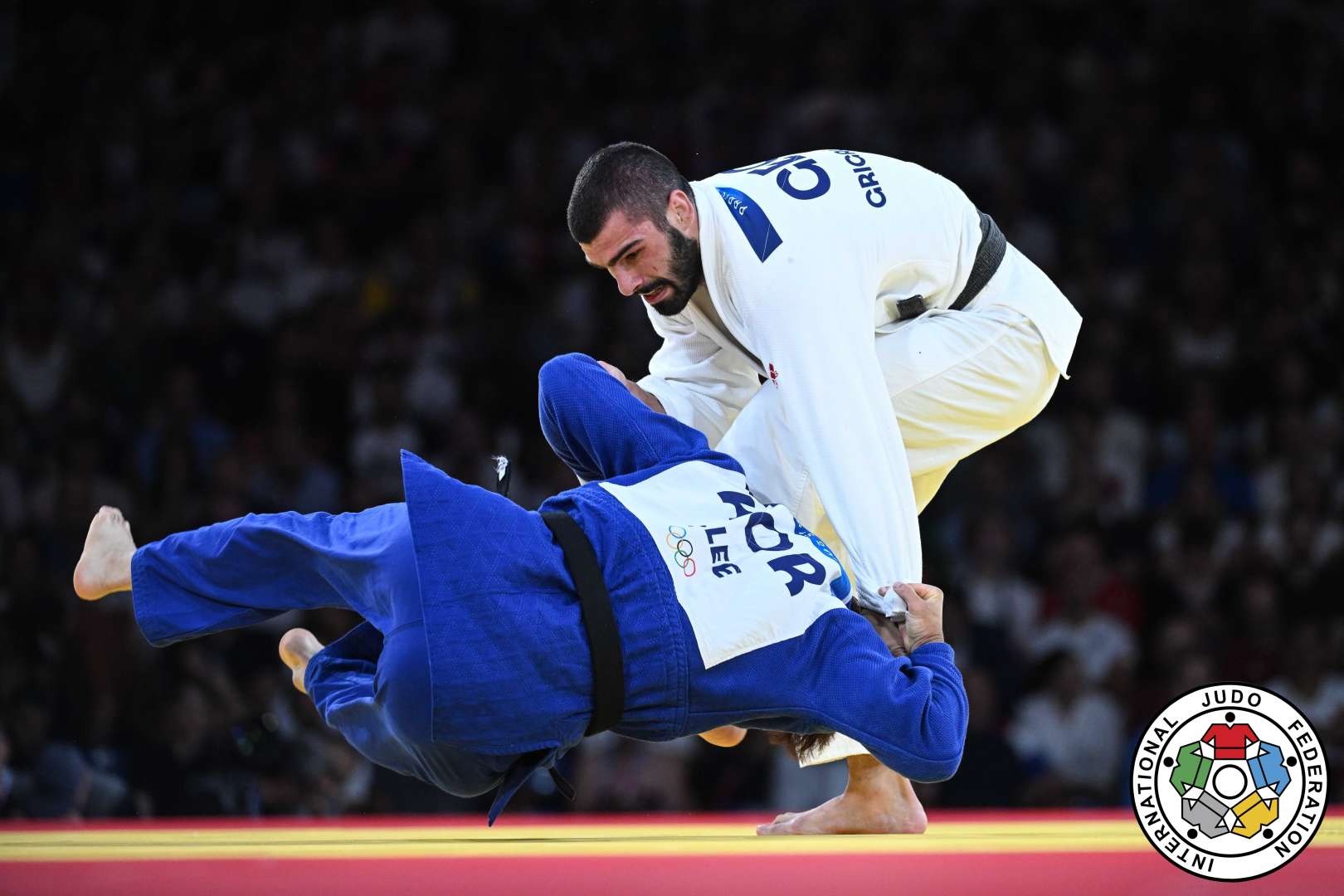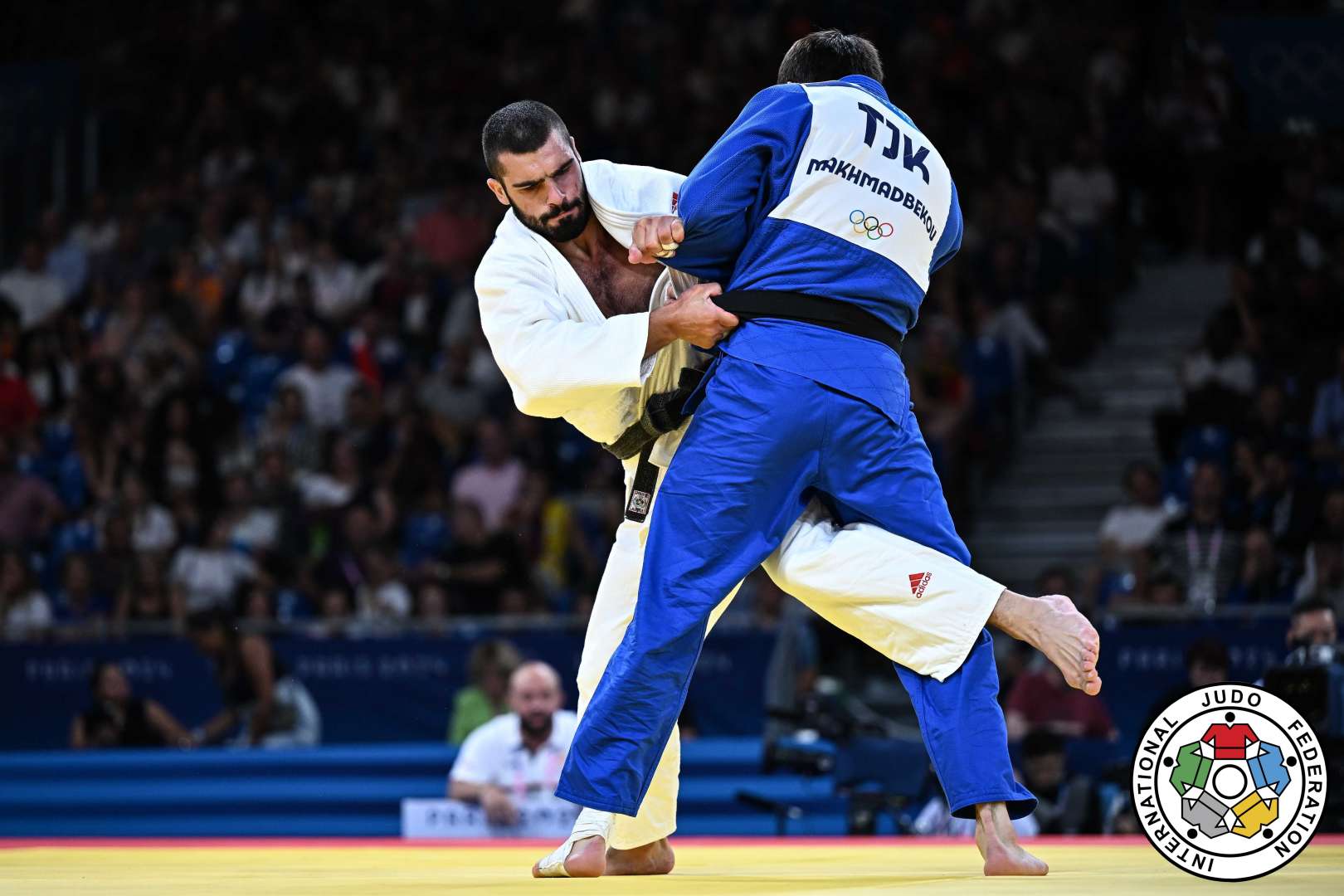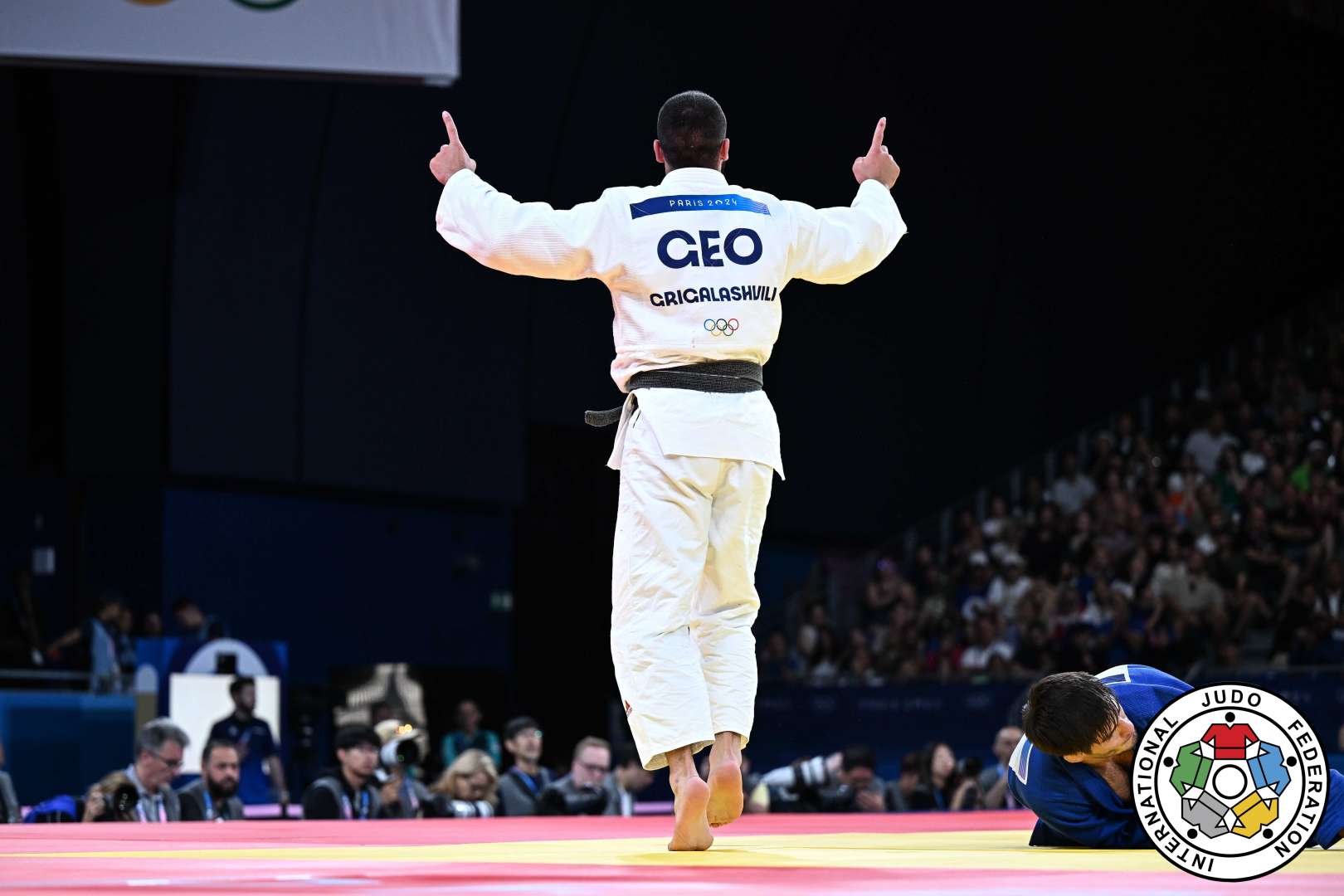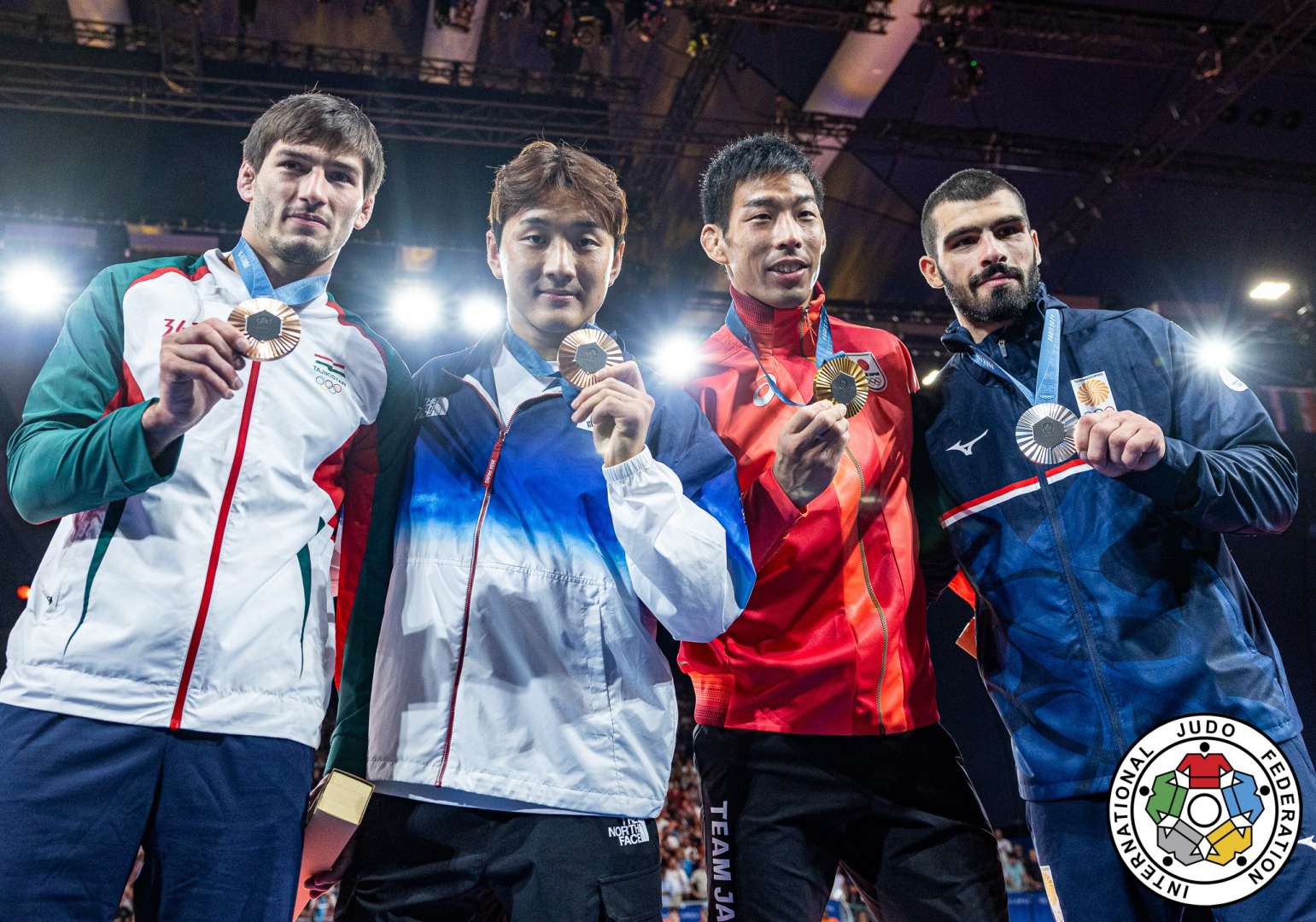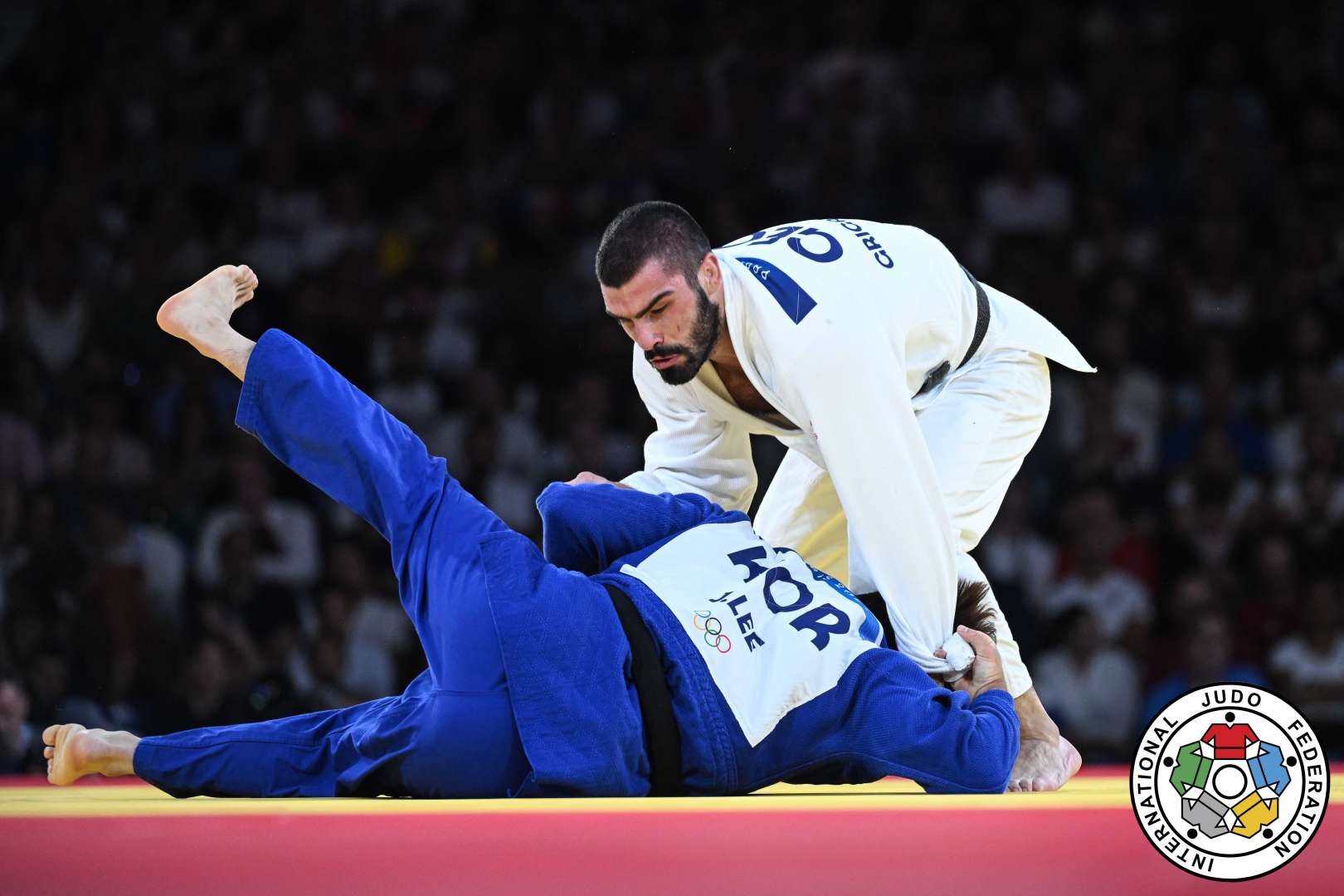Lucy Renshall makes golden comeback in Zagreb
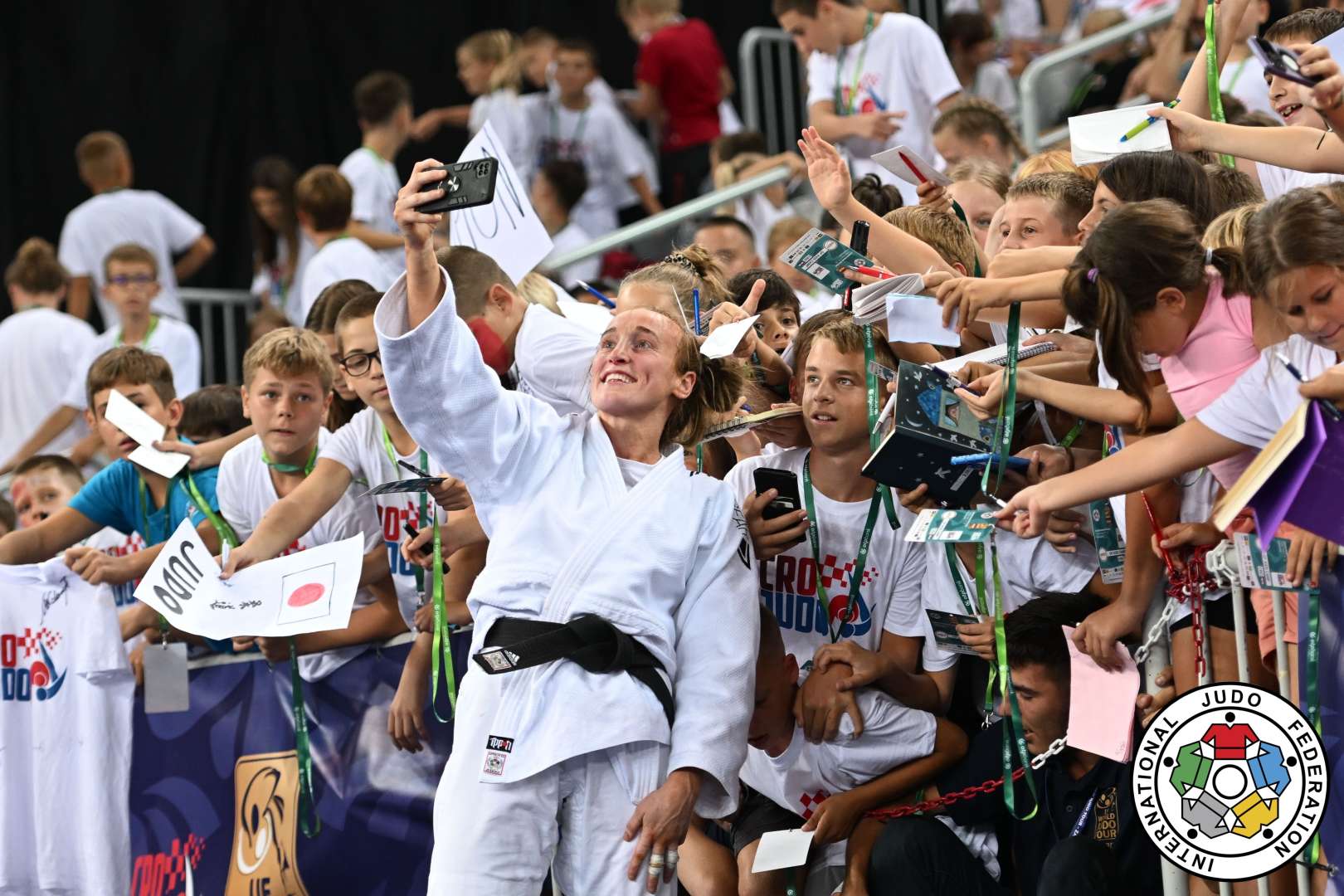
 19 Aug 2023 22:20
19 Aug 2023 22:20
 IJF Media team by Jo Crowley and JudoInside
IJF Media team by Jo Crowley and JudoInside
 Tamara Kulumbegashvili - IJF
Tamara Kulumbegashvili - IJF
Lucy Renshall (GBR) is back after her injury. With a gold medal at the Grand Prix in Zagreb she made her mark in her category U63kg. In the final against Korean Kim Ji-Su the extreme right stance of Renshall and the extreme left stance of Kim defined the hunt for the sleeve and the shape of the contest.
The Korean was certainly more active for the first half of the contest but Renshall remained unfazed, strong in transition, determined on the grip and using the experience she has gained as a 6-time grand slam champion, to hold her confidence and calmness. After a minute of golden score, the Brit was two shido to one down and needed to step up the pace. Still she kept her nerve and attacked with a powerful take back. The Korean avoided a scorable landing but there was a clash of heads producing a long stop for medical treatment for Renshall.
Clearly out of sorts and uncomfortable, the world number one returned to the mat determined to continue, face bandaged and in a new judogi. Another two minutes passed, furious attacks from both but neither connecting well enough to really threaten, the Brit leading in transition but still unable to score. Another short stop for an adjustment of strapping and they were under way again and this time with Lucy Renshall looking back to her composed self. Her pace was up while the Korean was losing impetus, her attacks being less and less well connected. The penalties became even, two apiece.
Seven minutes into golden score, Renshall getting closer in both ne-waza and tachi-waza, the Korean fell apart. A third shido came and the world number one showed clearly why she has held her ranking for so long. Under the pressure of her position from the beginning of the day and under pressure from an injury in the final, she, with the support of the IJF Medical Commission and clearance to continue, put in the effort of a champion and was rewarded with gold.
After the final Lucy Renshall said, “I don’t think I’d ever actually quit in a fight, there’s a job to be done. It hurts and there’s some blood to manage as my nose was hit pretty hard but to be honest it would have hurt more if I’d have given up and lost.
I say to my coach that it was always better when I was lower ranked because I wasn't watched so much and didn't have the same pressure as now but I am grateful for my position and how far I have come. I’m working with the team psychologist and coaches and although I felt I was behind for some of the contest, the crowd gave me the push I needed, along with the work we have been doing at home. I knew the team and the children in the audience were with me.”
Awiti-Alcaraz handled the early rounds comfortably to move into a quarter-final against friend and long time rival Piovesana (AUT), the judoka who beat her in the quarter-final in Doha; more pressure.
Of the three, it was only Renshall who made it to the semi-final and in fact she was also the only one of the top 4 seeds to do so. The bottom half of the draw was dominated by two unseeded judoka, Jisu Kim (KOR) and Minel Akdeniz (TUR). The number two seed, Haecker of Australia, was defeated by the former.
In the middle of the day, the world number one remained the favourite, with just a semi-final against Piovesana to hurdle for a place in the final. It was won on penalties, but it was won, sending the Austrian to the final block, not the final though.
The second semi-final was fought between Kim and Akdeniz with the Korean taking her chance to challenge the world number one under the lights and cameras of the final block.
In the repechage two of our initial subjects had to meet; Awiti-Alcaraz and home athlete Oberan battling for an opportunity to contest a bronze medal bout. It was the Mexican who won, dampening the crowd, despite their appreciation for the beautifully placed tomoe-nage that threw their girl on to her back and out of the competition. Awiti-Alcaraz would face the Turk for a medal, while Piovesana would have to pass Ivanescu for her place on the podium.
It took Awiti-Alcaraz just 11 seconds to fly under Akdeniz and throw a waza-ari on the board from a beautifully timed kata-guruma. Akdeniz had to chase hard and learned to anticipate the entry immediately, not falling for it again, despite the Mexican’s best efforts. However, Prisca is not glued to a single technique and caught the momentum or the Turk’s own attack to change direction and throw for a second score with a yoko-otoshi. Awiti-Alcaraz is getting better and better and today’s performance shows her growing confidence.
The second bronze medal contest was just as punchy, strong attacks from both from the very beginning. With a minute and a half gone it was Piovesana who made the biggest move up to that point, propelling Ivanescu to the mat with a huge ura-nage. The Romanian landed on her elbows and so also took a shido. Not long after that the Austrian strung together some neat ne-waza tactics and found an osae-komi with an inverted sankaku from which Ivanescu submitted. Originally it was scored ippon but the review process showed there was pressure on the neck to gain the submission rather than the shime-waza or the hold. The score was waved off and the fight continued. Piovesana managed to survive the onslaught, expertly managing the space and the timing of attacks to ensure her initial waza-ari would carry her to the podium, and it did.
 like
like
 share
share
.jpg)
| Result | City | Date |
|---|---|---|
| 2 | Paris | 2024 |
| 1 | Abu Dhabi | 2024 |
| 1 | Zagreb | 2024 |
| 3 | Belgrade | 2023 |
| 2 | Montpellier | 2023 |
